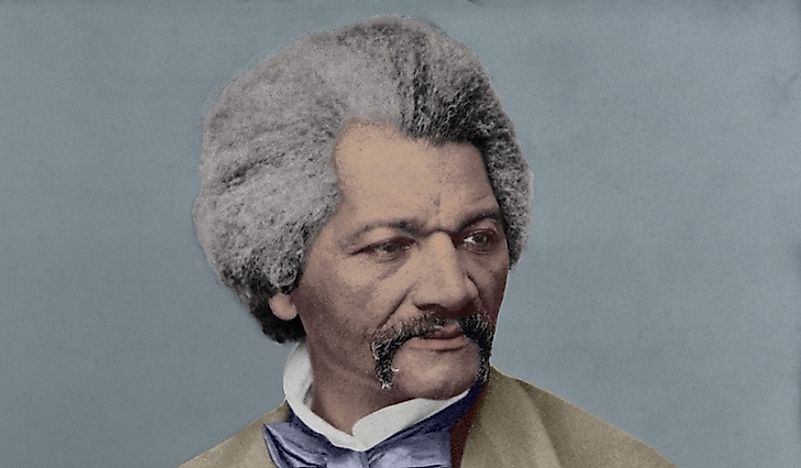Frederick Douglass - Important Figures in US History

Born into slavery on a plantation in Talbot County, Maryland in 1818, Frederick Augustus Washington Bailey was separated from his mother at an early age, and raised by his grandmother. Around the age of eight, he was taken to Baltimore to serve as a houseboy to Hugh and Sophia Auld, who were relatives of his master. It was there that he first began learning letters of the alphabet from Sophia. Hugh became angered when he discovered this, and forbade Sophia from giving further lessons in response. Young Frederick then took it upon himself to learn how to read and write from white children around the neighborhood. At the age of 20, and after several unsuccessful prior attempts, Frederick finally managed to make his way up to New York with the bride he had recently taken. He traveled under a new name, Frederick Douglass, which he would keep for the rest of his life.
4. Career
In his autobiography, Frederick Douglass credits The Columbian Orator, which he discovered around 12 years old, for helping him more clearly form and then expand his views on human rights. After moving to New York, Douglass joined a church and attended abolitionist meetings. These gatherings were where Douglass first met William Lloyd Garrison, a white abolitionist leader and writer of The Liberator. Garrison would be a mentor to Douglass for some time thereafter, until their views proved to be too divergent for reconciliation. In 1841, Douglass gave a speech at the Massachusetts Anti-Slavery Society in Nantucket, and was asked to become a regular speaker for the society. He stayed with the society for three years, thereby launching his career as a respected orator and abolitionist.
3. Major Contributions
Douglass made a number of notable contributions to American history, some of the most important of which were recorded in his writings as autobiographies and newspapers. Beyond antislavery and human rights in general, Douglass was also a supporter of women’s rights and suffrage. During the American Civil War, Douglass would use his influence to advise President Abraham Lincoln on the treatment of black soldiers, and the importance of black suffrage for newly freed slaves and already 'Freemen' alike. Although he was too old to take part in the war as a soldier, he continued writing and speaking out against slavery while working to recruit black troops for the Union Army. In 1872, despite his lack of knowledge or consent, he would also become the first black person to appear on a U.S. Presidential Ballot, doing so in a bid for the U.S. Vice Presidency.
2. Challenges
As a self-educated black man escaped from slavery, Douglass was faced with many hardships. Before his escape, he was made to work for Edward Covey, a farmer with a reputation for being a “slave-breaker”. The man constantly abused the then 16-year-old Frederick, and only stopped after losing a physical confrontation against him. When on lecture tours, it was not unheard of for Douglass to be chased and beaten by angry mobs. After he published his first autobiography in 1845, titled Narrative of the Life of Frederick Douglass, an American Slave, Douglass had to flee to Europe to avoid recapture, despite the book's success. Even after his book was published, many still doubted that such an eloquent writer could have been born a slave.
1. Death and Legacy
On February 20, 1895, at the age of 77, Douglass suffered from either a heart attack or stroke, after returning home from speaking at a meeting for the National Council of Women in Washington D.C.. Thousands attended his funeral to pay their respects, and he was inducted into the New York Writers Hall of Fame in 2010. There have been, and continue to be, numerous portraits and statues erected in his honor, and schools and parks named after him. Even after so many years since his death, Douglass continues to be remembered and honored as a forward-thinking leader in humanitarian, women's rights, and antislavery movements. He is often considered the most important African American leader of his time.







